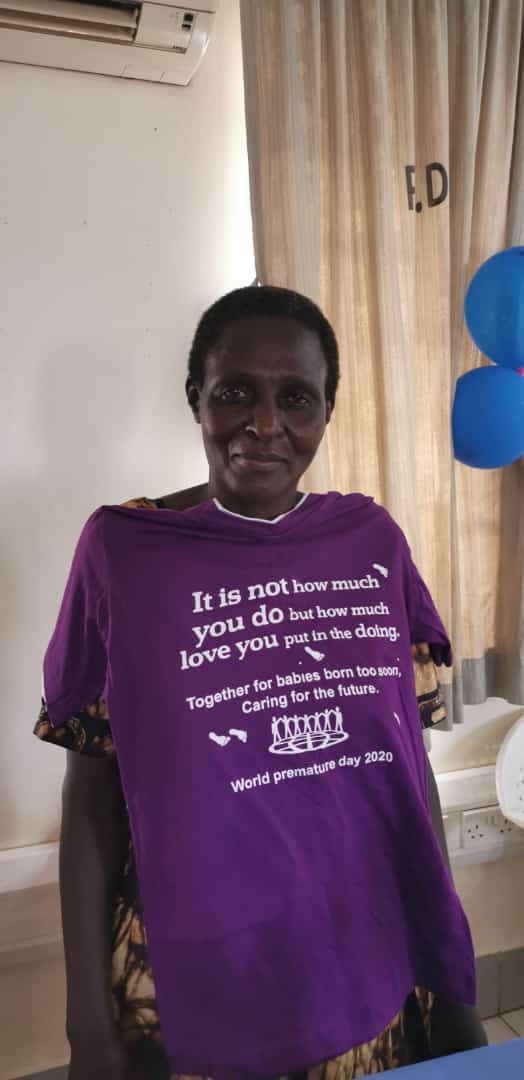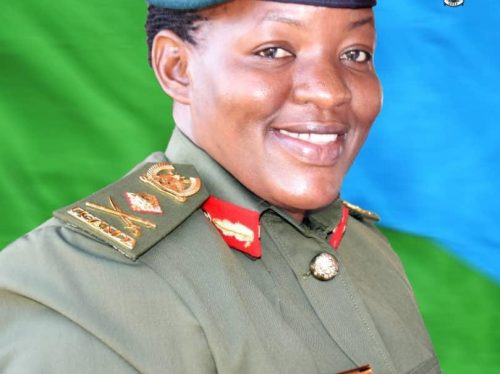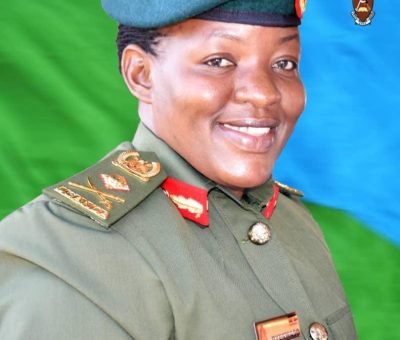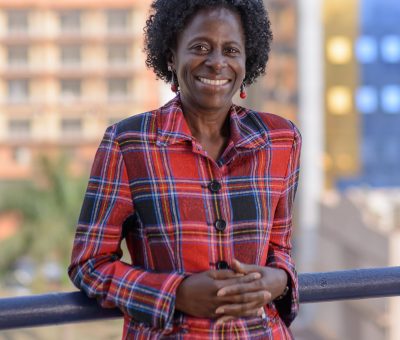Nurse Roy Nassozi: A nurse to whom patients were always a priority

The way she handles children leaves them not wanting despite their illnesses. Nurse Roy Nassozi, the daughter of the late Kikomeko, a no nonsense educationist from Kawanda, Kirinyabigo, has worked as an enrolled nurse in various medical facilities. She has worked with children since 1984.
“I qualified at Mengo School of Nursing in 1984 having begun the course in 1981. I worked in Mengo Hospital for a while until 1987 when I left for Kayunga Hospital in 1989. However, for some personal reasons, I had to leave Kayunga in 1995.”
In the same year, Nassozi joined Mulago National Referral Hospital at the Heart Institute for a year and then moved to paediatrics in 1996. She loved children the reason she found herself spending most of her time in the paediatrics wards most of her work life.
Nassozi retired in 2021 and is dearly missed by those she worked with.
Dr Richard Idro, a specialised paediatrician, with a particular interest in neurology says he has worked with Nassozi for long, especially in the outpatients’ clinic. These specialised clinics run on Thursdays and Mondays and there are many patients to see. She always organised these alongside another nurse and receptionist. Dr Idro says she has been a real patient advocate because even when the doctors are tired, she asks that they try and see another patient.
“Many of our patients have long-standing problems such as cerebral palsy, autism, epilepsy, and diabetes. One thing that has been critical with Sr Roy is that if a patient has been coming but shows no signs of improvement, she will pick up on that. Additionally, seeing that the clinics have fairly difficult cases, at times, we could take say 30 minutes with one patient. These waiting periods may be a little hard for the others. Here, she keeps monitoring the patients to see the urgency of her patients and thus who should see the doctor first,” he shares.
Talking about this small-bodied woman, Dr Idro says Sr Roy is an amazing woman who made the neurology clinics easier. “Sr Roy also took it upon herself to identify those with difficult problems thus ensuring they are seen by either me or one of my senior colleagues. The graduate doctors then handled those whose condition is stable. She also ably picked up problem cases such as those coming from far off seeing that some use the night bus to catch the clinic. That avoids unnecessary preferential treatment. For example, some insist on seeing a certain doctor inasmuch as their case was not urgent or had not registered. In so doing, patients were happy while doctors had their work made easier,” he says.
The thing about these clinics is that people had to book in advance so that the medical staff prepared better for them. However, at other times, Nassozi was at loggerheads with some patients who wanted preferential treatment. Some also had no referral yet this is a referral clinic. That said, when they are from far, she always ensured that none is left unattended.
Summarily, Dr Idro says Roy is the best nurse he has ever worked with and being a doctor for the last 27 years, she has surpassed my expectations.
Dr Sabrina Kitaka remembers Nurse Roy as an excellent nurse, kind, committed, and dedicated. “She always places her patients before her. I remember once when she had a bad accident, but she still came to work at the outpatient clinic. She is a joy to work with.”
Recounting beautiful moments, Nassozi says there was a child with diabetes in Stanfield Ward whose leg got affected at one time. “When I saw them, early this year, the wound had healed. That gave me a lot of joy,” she says smiling.
However, the hard moments are not missing. She says that oftentimes, these arise with mothers taking care of these children. “I have learned to keenly listen to them because they have a lot on their mind. For example, at the neural clinic, some of these mothers have been abandoned by their husbands and they are singlehandedly taking care of the child. When not well handled, they also get frustrating to deal with. Otherwise, the rest of the clinics are not problematic.”
Nassozi says that working in the specialised clinic has been a real blessing because the people she works with have held her hand through tough situations. They include Dr Idro, Dr Sabrina Kitaka, Dr Hellen Anyu, Dr Tereza Piloya, and Prof Dr Grace Ndezi. “These have made this journey so beautiful.”
Nassozi retired in September 2021 when she made 60 years. “It was quiet a celebration from my fellow staff members who held a birthday party for me. They also gifted me with many things. The moment really showed me that I am appreciated and loved.”
Future
While I hope to open a drug shop back home, I am currently doing research on Vitamin D supplementation under Dr Ndezi.
Back home, there is a family whose children are sicklers; 14 and 12 years. However, their mother was reluctant to bring them to Mulago for medical help. Nonetheless, I made it my job to always remind her that she could give the children a better life if she came to the sickle cell clinic. One time, she brought the children and from then on, the hospitalisation owing to anaemia reduced. Actually, one of the sons started encouraging the mother to bring them.
Working in specialised clinics means that you deal with children with chronic conditions, some of which are critical. Additionally, many parents from faraway places come to get treatment. Therefore, Nurse Roy played patient advocate to ensure that critically ill children get first priority. She also ensured that those from far away get reviewed by the specialists even past 1pm when the clinics should be winding up.
However, this was made possible by creating rapport with the doctors so that when she goes to them to share her thoughts, she is well received.


















